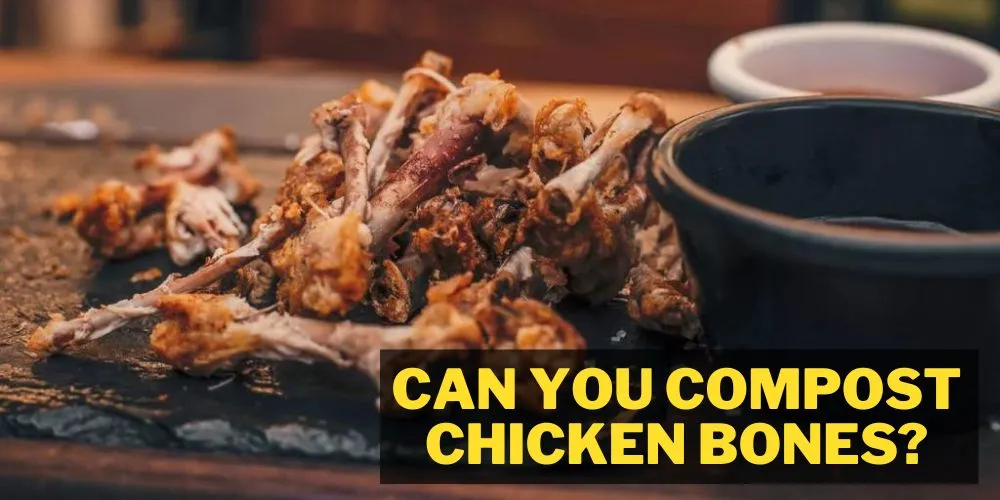Yes, composting corn cobs is possible. Corn cobs are carbon-rich and serve an additional purpose by providing air pockets in a compost pile, which speeds up the decomposition process. To compost corn cobs, cut them into small pieces and wet them to provide moisture to your compost. Letting them slowly compost in your garden is better than sending them to landfills. Let me explore the question, can you compost corn cobs? in more details below.
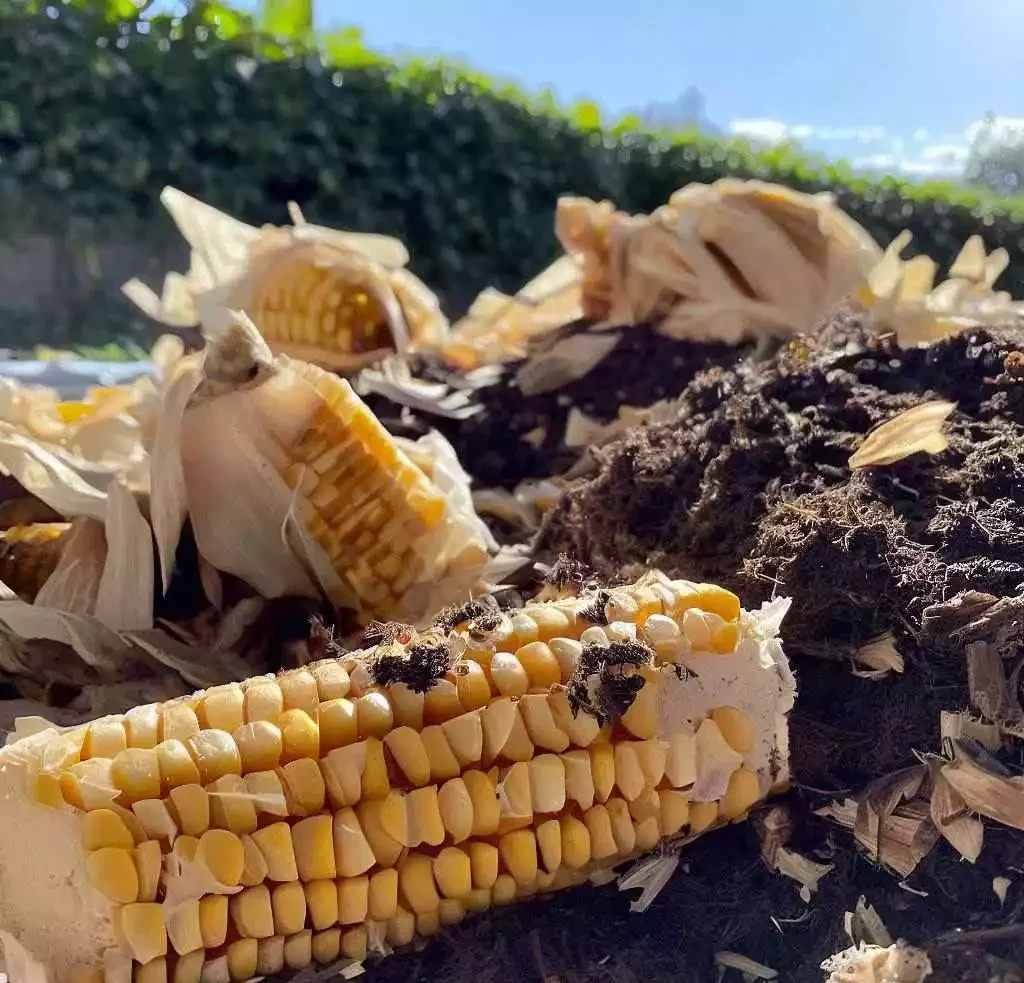
Can you compost corn cobs?
Yes, corn cobs can be composted. They are a great addition to a compost pile because of their high carbon content, essential for creating a balanced compost. Corn cobs take longer to decompose than other materials due to their tough and fibrous nature. However, they are still a valuable component of compost because they provide air pockets that help break down other materials in the pile.
To compost corn cobs, it is recommended that you chop them into smaller pieces to speed up the process. This will also make it easier for microorganisms to break them down. As with any composting process, it is important to maintain a balance of carbon-rich materials like corn cobs and nitrogen-rich materials like green leaves or food scraps.
It is also important to note that corn cobs can attract pests like rodents or raccoons, so burying them deep in the compost pile or using a closed composting system is recommended. Composting corn cobs can help reduce waste, save landfill space, and create nutrient-rich soil for your garden.
How long does a corn cob take to decompose?
Corn cobs take a considerable amount of time to decompose, anywhere around 2 months, depending on the moisture level and the type of composting system.
Pro Tip: Cobs need to be in a hot, moist environment to break down properly and can take up to two to four years to fully decompose, depending on the humidity level.
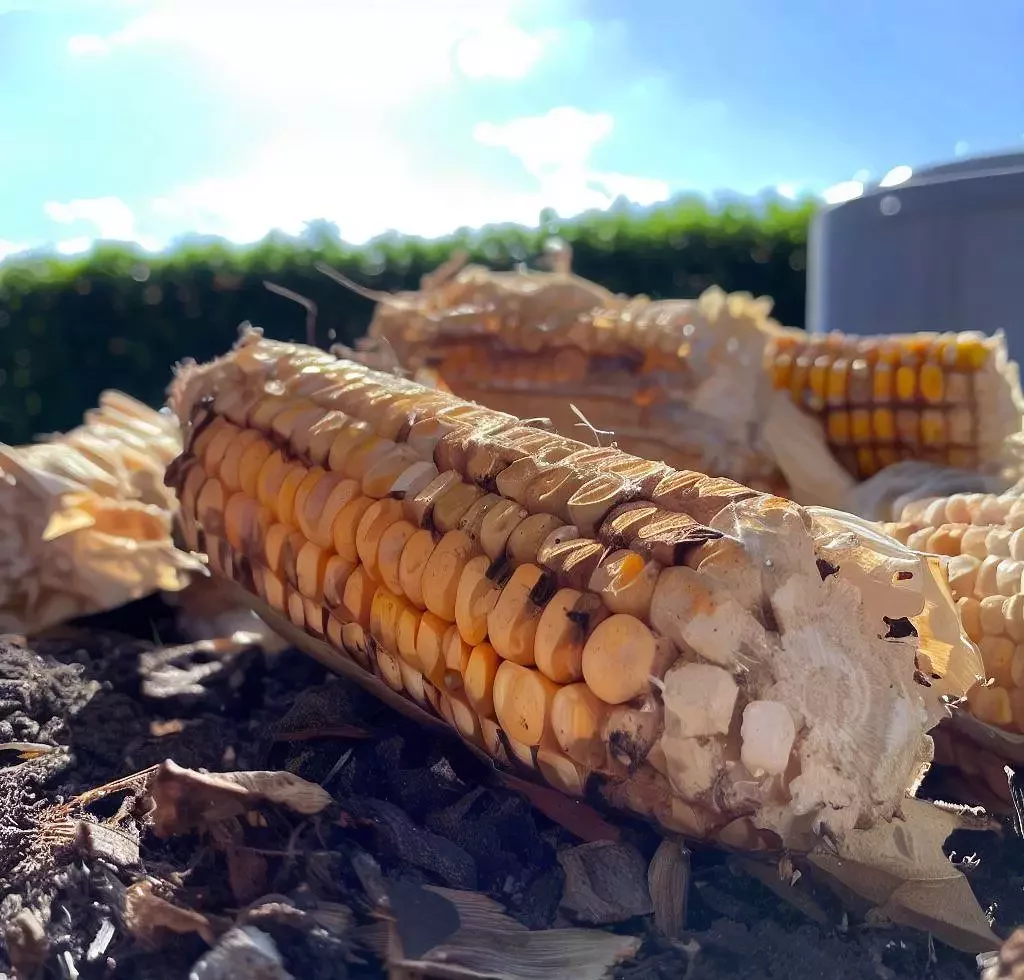
How To Compost Corn Cobs?
Composting is an excellent way to reduce waste and create nutrient-rich soil for your garden. Corn cobs are a great addition to a compost pile because of their high carbon content. Here is a step-by-step guide on how to compost corn cobs:
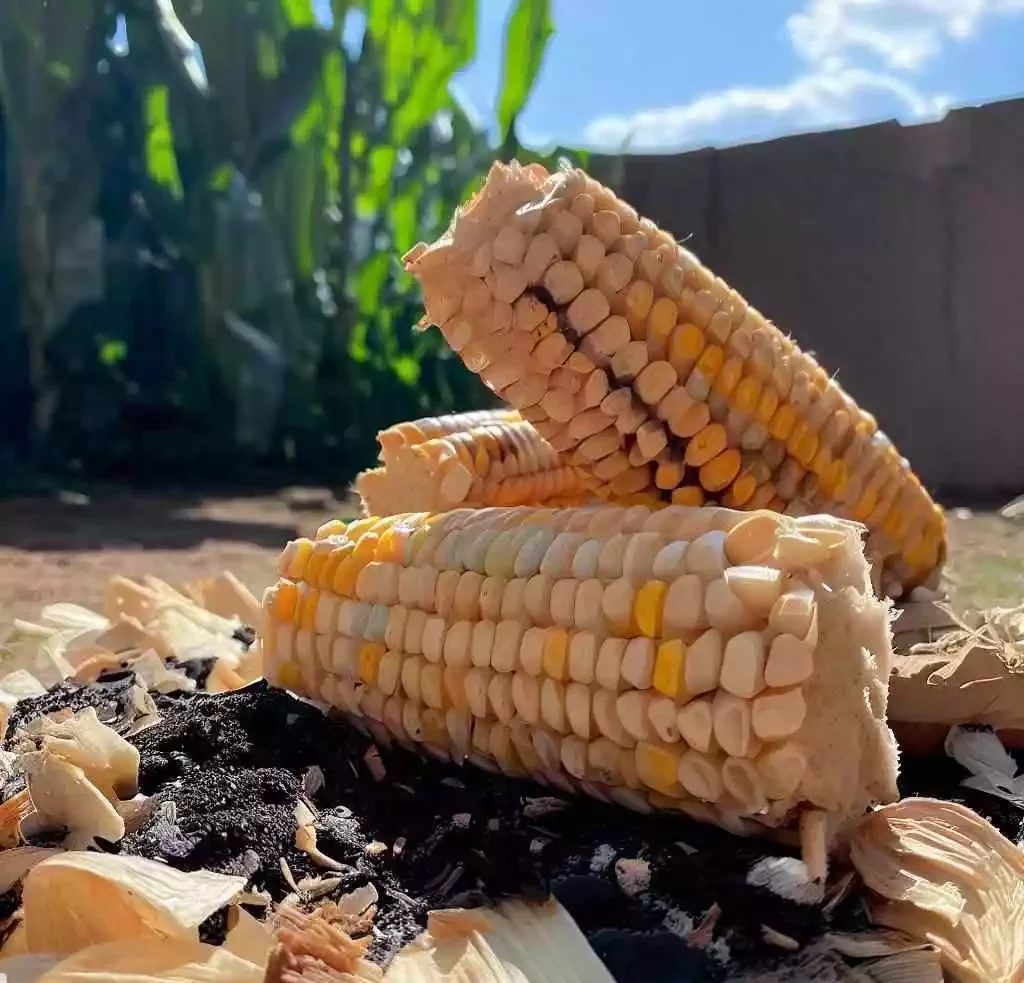
- Collect Corn Cobs: The first step is to collect corn cobs, either from your garden or local farmers’ markets. Ensure they are free from pesticides or chemicals that can harm your compost pile.
- Chop Corn Cobs: Cut the corn cobs into smaller pieces using a sharp knife or a saw. This will help speed up the decomposition process and make it easier for microorganisms to break them down.
- Build a Compost Pile: Choose a location for your compost pile, preferably in a sunny area with good drainage. Start by creating a layer of dry, carbon-rich materials like leaves, twigs, or straw.
- Add Corn Cobs: Add the chopped corn cobs to the compost pile as a layer on top of the dry material. Mixing the corn cobs with other nitrogen-rich materials like food scraps or grass clippings is important to maintain a balanced compost.
- Water the Compost Pile: Water the compost pile thoroughly, ensuring it is moist but not soaking wet. This will help activate the microorganisms that break down the pile’s corn cobs and other materials.
- Turn the Compost Pile: Turn the compost pile every few weeks using a pitchfork or a shovel. This will help mix the materials and provide the necessary oxygen for the microorganisms to thrive.
- Harvest the Compost: After several months, the corn cobs and other materials in the compost pile should have broken down into a dark, crumbly soil-like substance. This is the compost, and it is ready to be used in your garden to enrich the soil.
What do farmers use corn cobs for?
Farmers use corn cobs in various ways, making them a valuable resource. One common use of corn cobs is as animal feed. They are often ground up and mixed with other ingredients to create nutritious feed for livestock, such as cows and chickens. Corn cobs can also be used as bedding for animals, as they are absorbent and comfortable for the animals to lie on.
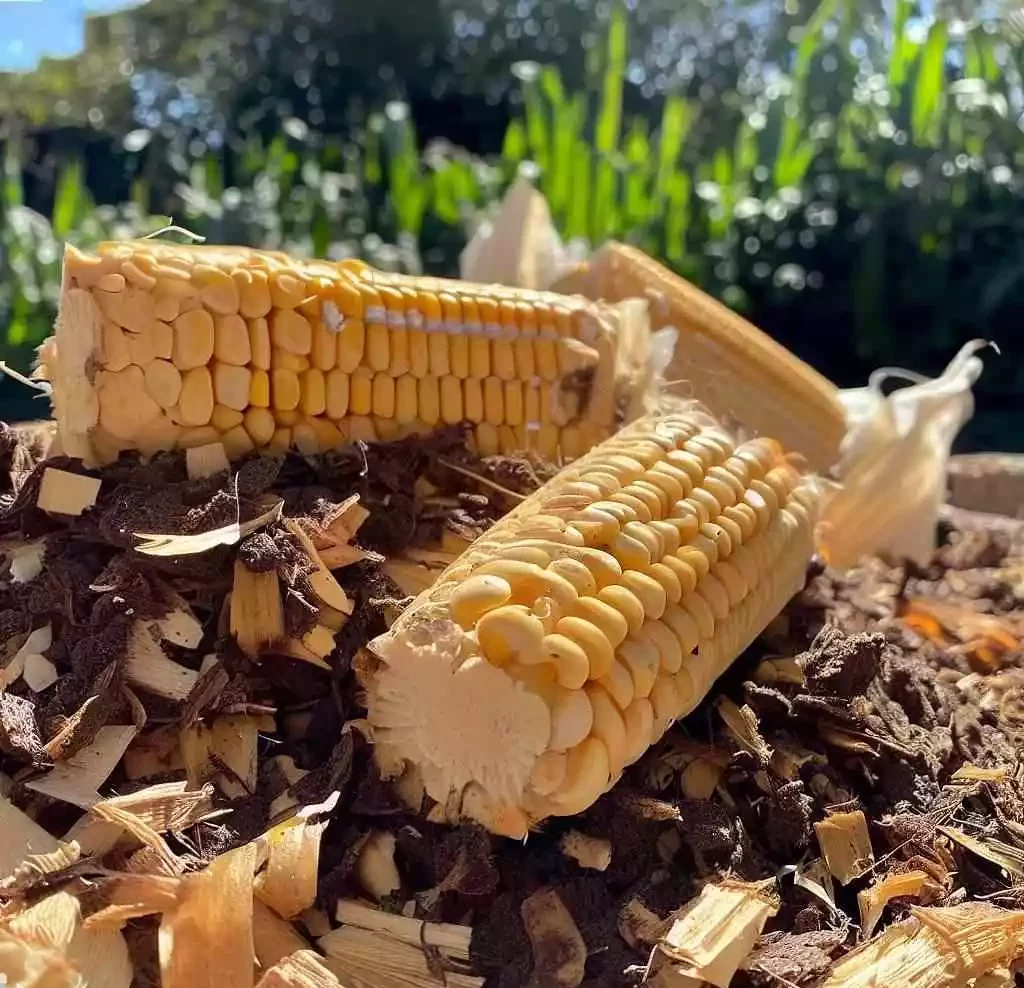
Another use of corn cobs is as fuel. They can be burned to produce heat, making them a renewable energy source. Additionally, corn cobs can be used as a source of biochar; charcoal is used to improve soil quality and sequester carbon.
Farmers also use corn cobs as mulch to help retain moisture and suppress weeds in their crops. They can be ground up and spread around the base of plants or used as a layer on top of the soil.
In summary, farmers use corn cobs for various purposes, including animal feed, fuel, biochar, and mulch. This versatility makes corn cobs a valuable resource on the farm.
You May Also Read: Can you compost chicken bones?
Frequently Asked Questions (FAQs)
Question: How long does it take for a corn husk to decompose?
Answer: The decomposition of dry corn husks can span from three months to a year. Nonetheless, their sturdy nature requires moisture from other compost materials to aid in the decomposition process. It’s advisable to break the dry husks into smaller fragments before incorporating them into the compost, which facilitates their breakdown.
Question: Can you compost corn husks and silk?
Answer: Yes, you can compost corn husks and silk. Corn husks are considered brown carbon materials and an excellent nutrient source for the soil. Balance corn husks with green compost materials to achieve a good brown/green compost ratio.
Conclusion:
I hope, I have been able to clear your confusion regarding can you compost corn cobs or not. composting corn cobs is an easy and effective way to reduce waste and create nutrient-rich soil. Following the simple steps of chopping the corn cobs, adding them to a compost pile with other nitrogen-rich materials, and turning and watering the pile regularly, you can create a valuable resource for your garden.
Not only does composting corn cobs benefit your garden, but it also helps reduce waste and supports sustainable agriculture practices. So, don’t throw away those corn cobs – compost them!


